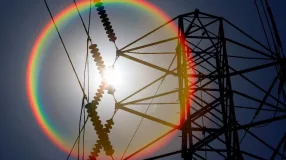Throughout New York and New England, demand for natural gas has risen considerably in recent years as consumers and businesses gradually realize the numerous advantages natural gas provides as an energy source. However, as demand for natural gas has grown in the region, so too has opposition to the construction of new natural gas infrastructure, arguing that such development is unnecessary and only serves to contribute to the impacts of climate change.
The combination of these two factors has resulted in a critical lack of regional pipeline capacity and left utilities struggling to meet new customer demand. Ultimately, this has culminated in utilities placing moratoriums on new natural gas hookups in parts of New York and New England, warning state and local leaders that more gas cannot move into the region to meet new demand without constructing additional pipeline infrastructure.
In New York and New England, the region’s self-imposed lack of pipeline capacity represents something more than just higher energy costs. Rather, local leaders are warning that the proposed moratoriums could deal a crippling blow to much-needed economic development in their communities.
On Jan. 1, 2019, Andrew Cuomo began his third term as the governor of New York state on Ellis Island, delivering an inaugural address that outlined the key priorities of his administration: Grow the state’s economy by promoting economic development, and stimulate job creation with high-paying wages, while concurrently improving the environment.
However, because of Governor Cuomo’s ardent opposition to the construction of any new natural gas infrastructure in the Empire State, the goals meant to define his third term could amount to nothing more than a pipedream.
Natural gas is a unique source of energy because it is clean-burning, domestically abundant and affordable. These unique traits have proven natural gas to be an effective tool for boosting economic development while simultaneously reducing emissions. For instance, New York City has implemented measures to switch buildings from burning residential heating oil to natural gas to combat persistent air-quality issues.
In the rest of New York state, demand for natural gas has also skyrocketed. However, existing natural gas infrastructure in New York is not capable of meeting demand – and Governor Cuomo’s opposition to the construction of new pipelines in the state has resulted in a severe lack of capacity, causing several local natural gas utilities to implement a moratorium on new residential and commercial connections.
Recently, the situation in New York reached a fever pitch when Con Edison (Con Ed) and National Grid announced moratoriums on new firm service in certain areas and the potential for future moratoriums – even in New York City – if there is not an increase in pipeline capacity. In southern Westchester, just 30 miles from Manhattan, Con Ed has surpassed its limits and imposed a moratorium in March.
Local leaders warn that the moratorium could devastate economic development in the county and significantly impact its citizenry. “It’s going to devastate development in Westchester, including affordable housing initiatives, all economic development,” said Assemblywoman Amy Paulin (D-Scarsdale). “It sounds at first blush that we have a major catastrophe.”
Preliminary economic analysis projects that the construction of 16,000 homes in Westchester County could be suspended because of the moratorium, and 2 million square feet of retail and commercial space could be impacted.
Development in New Rochelle received $10 million from Governor Cuomo’s downtown investment program, but this project could be stalled because of the moratorium. Yonkers, the fourth-largest city in New York, is experiencing a building boom – but Yonkers Mayor Mike Spano cautions that the moratorium would end this development. “Developers are already telling us they can’t build more housing or commercial buildings until this is resolved,” Mayor Spano said.
One of the Cuomo administration’s signature economic development plans is the Belmont Park project on Long Island. It is slated to be the new home of the New York Islanders hockey team and an important revitalization effort on Long Island. Yet, National Grid warns that there will not be enough capacity to support the stadium if Governor Cuomo rejects the Williams Northeast Supply Enhancement Project. If the situation is not resolved appropriately, National Grid and Con Ed may be forced to impose moratoriums on new customers on Long Island and across the other boroughs, too.
With each project rejection, Governor Cuomo is closing the door to future opportunities, further exacerbating the issue. Con Ed officials have said rejections have made it difficult to entice any pipeline developers willing to build in Westchester. Con Ed spokesman Michael Clendenin told the New York Times, “The market has changed; investors were no longer willing to take the risk.”
The situation in parts of New England is equally as dire. On Jan. 28, Holyoke Gas & Electric announced that it would impose moratoriums on new natural gas connections due to significant pipeline capacity constraints. In a notice to customers, the company explained:
“While inexpensive natural gas has never been more plentiful in the United States, there is insufficient pipeline capacity in our region to deliver additional load. Recent proposals that would increase natural gas capacity in the region have been met with opposition, and the current pipeline constraints are causing significant adverse environmental and economic impacts on the region’s ratepayers.”
In total, Holyoke Gas & Electric and Middleborough Gas and Electric have imposed moratoriums on more than a dozen towns. In the fall of 2018, Berkshire Gas Company was forced to indefinitely extend an existing four-year moratorium on new or expanded gas connections in eight Franklin and Hampshire county towns “due to the limitations on the capacity of the delivery system.”
Just like in New York, the moratoriums on new or expanded natural gas contracts is having a significant impact on the economic development of affected areas. In a letter to Karen Zink, president and COO of Berkshire Gas, former President of the Massachusetts Senate Stanley Rosenberg wrote:
“The moratorium is having, and will continue to have, a negative impact on economic growth in the region. I have heard from many indicating that their business and residential projects are stalled because they cannot access the system. This is deeply troubling, especially in light of the recent recession and its lingering effects.”
In 2017, Geoff Kravitz, the director of economic development in Amherst, told the Daily Hampshire Gazette that a master brewer abruptly cancelled plans to open a microbrewery and tap room in Amherst, because “any alternative to natural gas would be cost prohibitive.” Furthermore, in written testimony as a certified expert witness to the Department of Public Utilities, Kravitz noted that the moratorium on natural gas is impacting all aspects of their community, including public schools. According to Kravitz, Wildwood School had to spend $400,000 on a new boiler because the moratorium prevented school officials from installing a more efficient and less costly natural gas-powered boiler.
Ultimately, access to affordable and efficient energy is the engine that drives economic development. For many parts of the United States, natural gas has proven to be an indispensable ally, driving growth while simultaneously having a positive effect on the environment. And pipelines make all of natural gas’ benefits possible. As American Gas Association COO Lori Traweek told the New York Times, “Without [a pipeline], you are taking away consumers’ affordable choice, potentially increasing emissions and reducing reliability. That doesn’t seem like a good energy policy.”
The situation in New York and New England serves as a testament to this. By rejecting the construction of new pipelines and other critical natural gas infrastructure, leaders in both regions have manufactured an avoidable crisis that threatens numerous communities with serious and potentially long-lasting economic impacts.







